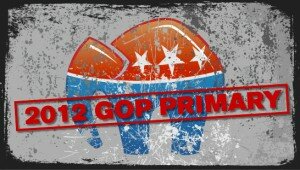New GOP rules bad for New Hampshire, good for Ron Paul
September 30th, 2011I’m in no position to be endorsing a candidate, and truth be told I’ve lost a lot of confidence in the voting process in the last four years. At this point I’m not planning on voting at all. But four years ago I was campaigning for Ron Paul. I had no illusions about him winning the GOP primary, but no one else was talking about the Federal Reserve or US foreign policy like he was. It wasn’t that Ron Paul was a man that I supported, it was that the R[evol]ution was a message I supported, and I essentially viewed my donations to the Ron Paul campaign as paying someone to say the things I wanted said on TV.
New Hampshire has long enjoyed a special place in electoral politics as the first primary in the race. The Iowa caucus and the New Hampshire primary are viewed by many campaign strategists as bellwethers for the rest of the race. So, many Ron Paul supporters here in California and many other states picked up their lives and moved their campaign efforts to New Hampshire. Many of them quit their jobs to do it, and some of them never came home. The logic of these early movers was that if they could deliver New Hampshire to Ron Paul that would force the mainstream media to take him seriously, vault him to top tier status and generate the momentum they needed to sweep the rest of the race.
Well it didn’t work. Ron Paul’s defeat in New Hampshire set the pace for the rest of the campaign and by the time it was our turn to vote out here in California it was already clear that the R[evol]ution had lost the battle. My vote was little more than a token gesture.
But the war wasn’t lost. Four years ago very few people were even discussing the Federal Reserve. It was a fringe issue. Now it’s a topic of open debate. In Iowa Rick Perry said “Printing more money to play politics at this particular time in American history is almost treasonous in my opinion.” I personally wouldn’t have said “almost,” … in fact I might have shortened it to “Printing money is treasonous.” Even if the blackout continues and Ron Paul fades into relative obscurity the fact that the topic of the Federal Reserve has broken into the mainstream is a huge victory for the R[evol]ution.
Not many people are reporting on it, but this year the rules of the GOP primary have changed in a way that could dampen the historical role of Iowa and New Hampshire, but could also give underdogs like Ron Paul a fighting chance. At the Republican National Committee (RNC) last year members voted 103 to 41 to change the structure of the primary.
The original idea with the primary schedule was to let smaller states like Iowa and New Hampshire kick-off the primary season so that their input wasn’t overshadowed by larger states like Texas and Florida. But the nomination race sweeps from East to West, so by the time it was California’s turn to vote the race was pretty much already decided. In 2008 many states moved up their primary dates to increase their influence over the race. The new rules moved the Iowa caucuses from January 3rd to February 6th and make it so only New Hampshire, South Carolina and Nevada will be permitted to hold their primaries in February.
So, New Hampshire keeps it’s first-in-the-nation primary status, but the new rules also change the way convention delegates are awarded, which is the whole point. This could diminish the early states’ influence as bellwethers. The crux of the matter is whether states hold so-called “winner take all” contests or award delegates proportionally. Under the new rules states that hold their contests in the month of March must award delegates proportionally, similar to the Democratic Party, and if they want to hold a “winner take all” primary they’ll have to wait until April.
In a “winner take all” system all the delegates (or electoral votes) are awarded to whichever candidate wins the front spot. So, for example, let’s say Florida hypothetically sends 100 delegates to the 2012 National Convention. If we go by the recent Florida straw poll all 100 delegates go to Federal Reserve shill Herman Cain, who received only 37% of the vote. This system is hugely beneficial for entrenched powers because voters are made to feel like they are throwing away their vote if they aren’t voting for one of the top two candidates. It also means candidates have no incentive to campaign in secure states and districts because they’re getting all the delegates anyway.
In a proportional system delegates are awarded to candidates proportional to their support. So, in the same example Cain gets 37 delegates, Rich Perry gets 15, Romney gets 14, Santorum gets 11, Ron Paul gets 10, Gingrich gets 8, Huntsman and Bachmann both get 2. The breakdown in the actual primary will obviously be different because people will have dropped out by then, but the point is that it’s a more representative system, which means the fringe voices get their opportunity at the National Convention. It also means every state is a battleground, and even modest success in large primary like California can still have an effect on the larger discussion.
Posted by:


